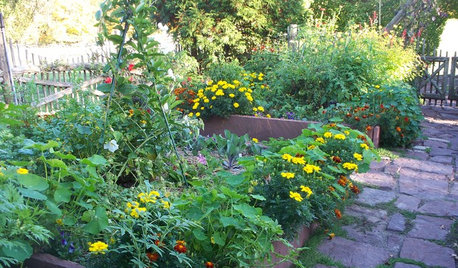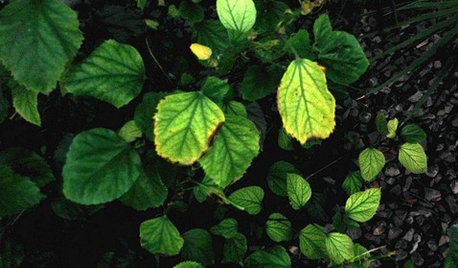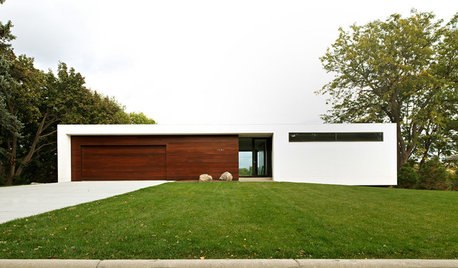leaves as organic matter?
marcantonio
11 years ago
Related Stories

GARDENING GUIDESOrganic Matters: Thwart Insect Pests With Trap Crops
Add a few sacrificial plants to your garden to lure insects away from the harvest
Full Story
FALL GARDENING5 Ways to Put Fall Leaves to Work in Your Garden
Improve your soil and yard the organic way with a valuable garden booster that grows on trees
Full Story
MORE ROOMSHome Tech: Speakers Matter (and Can Look Good, Too)
See why high style and high fidelity needn't be mutually exclusive
Full Story
DECORATING GUIDESHow to Choose an Awesome Area Rug No Matter What Your Space
High use, a low door, kids and pets running amok — whatever your area endures, this insight will help you find the right rug for it
Full Story
ECLECTIC HOMESMy Houzz: Community Matters for a Canadian Café and Home
Celebrating food, play and life, this formerly run-down corner building is now a neighborhood treasure and a family's haven
Full Story
GARDENING GUIDESWhat's Wrong With My Plant? Leaves Often Hold the Clues
Learn how to identify common plant ailments by reading their leaves
Full Story
LAUNDRY ROOMSRoom of the Day: The Laundry Room No One Wants to Leave
The Hardworking Home: Ocean views, vaulted ceilings and extensive counter and storage space make this hub a joy to work in
Full Story
DECLUTTERINGDownsizing Help: Choosing What Furniture to Leave Behind
What to take, what to buy, how to make your favorite furniture fit ... get some answers from a homeowner who scaled way down
Full Story
REMODELING GUIDESThe Good House: Little Design Details That Matter
Tailored trim, cool counters and a nice weighty door — such details add so much to how a home feels to the people inside
Full Story
ARCHITECTUREWhy Authenticity in Architecture Matters
Is your home's exterior making a promise it doesn't keep? Learn why integrity and consistency are essential for architectural success
Full Story







User
bill_59texas
Related Professionals
Glen Ellyn Landscape Architects & Landscape Designers · Anderson Landscape Contractors · Brownsville Landscape Contractors · Davidson Landscape Contractors · Deerfield Landscape Contractors · Edinburg Landscape Contractors · Florham Park Landscape Contractors · Mendota Heights Landscape Contractors · Placerville Landscape Contractors · Plymouth Landscape Contractors · Wilsonville Landscape Contractors · Maplewood Landscape Contractors · Northbrook Decks, Patios & Outdoor Enclosures · Sun Lakes Decks, Patios & Outdoor Enclosures · West Hills Decks, Patios & Outdoor EnclosuresKimmsr
jolj
Tiffany, purpleinopp Z8b Opp, AL
blazeaglory
toxcrusadr
Kimmsr
Mojo_Soil
blazeaglory
Kimmsr
luckygal
Kimmsr
jolj